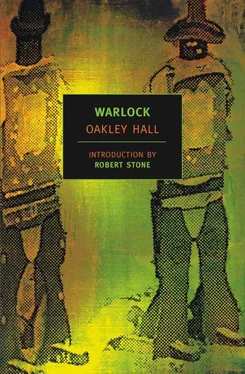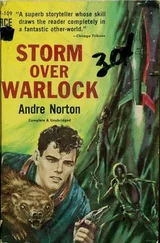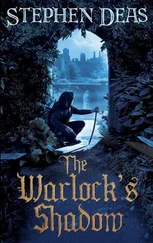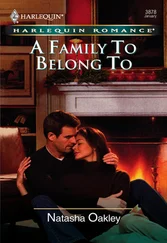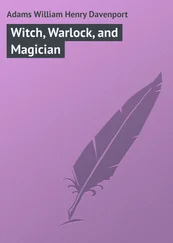This is the sky of Gethsemane, and that of Bethlehem has vanished with its star.
68. GANNON SEES THE GOLD HANDLES
I
GANNON came awake with a start and stared at the outline of the window that was emerging gray from the surrounding darkness. He raised himself carefully on one elbow and looked down at Kate’s sleeping face, with the soft mass of hair beneath it on the pillow like a heavy shadow, the soft curves of her lashes on her cheeks, and her lips, which looked carved from ivory. He watched the rounding and relaxation of her nostrils as she breathed, and the slow, deep rise and fall of her breast. One arm was thrown across it and her fingers almost touched him.
Slowly, watching her face, he began to slide away from her, stopping when her lips tightened for a moment and then parted as though she would speak. But she did not waken, and he eased himself from her bed, and carried his clothing, shell belt, and boots into the living room to dress. His holstered Colt thumped upon the oilcloth-covered table as he set it down, and he held his breath for a moment, but there was no sound from the bedroom.
He looked in at her one last time before he put on his boots. Her hand had moved over a little farther, to lie where he had lain. He put the key on the table, went outside, and in the dark gray chill set his boots down and worked his feet into them, and softly closed the door.
The town was empty and out of the grayness buildings and houses came slowly at him like thoughts emerging from the gray edges of his mind, to hang there unattached, two-dimensional, and strange in the silence that was broken only by the hollow clump of his boots upon the boardwalk.
Down Grant Street he could just make out the high bulk of the General Peach, lightless and asleep. He turned right down Main Street. A few stars still showed frail shards of light, but almost as he looked up they were gone. He walked past the hotel and the empty rocking chairs upon the veranda, and across Broadway; he felt a strangely intense sense of possession of the vacant town in the early morning. He passed the ruin of the Glass Slipper, the pharmacy and the gunshop with their shattered windows, and skirted again the charred timbers on the boardwalk before the Lucky Dollar. The sickly sweetish stench, and that of whisky, were dissipated now, but inside the wreckage was still smoking. He crossed Southend and halted for a moment beneath the new sign to gaze into the dim interior of the jail, and felt the adobe breathing the night’s chill upon him.
He waited there until he heard the judge stir and snore in the cell, and then he went on to Birch’s roominghouse, again removing his boots so he would awaken no one as he climbed the stairs to his room. Upstairs there was a dull concert of snoring, which faded when he closed his door. He lit the lamp and held his hands to its small warmth for a moment, and then he stripped off his clothes and washed himself, soaping and scrubbing his white flesh with a rag and icy water from the crockery pitcher; he shaved his face before the triangle of mirror. He laid out clean clothes and dressed himself with care, his best white shirt, his new striped pants — store pants from the legs of which he tried to rub the creases — and dusted off his new, too-tight star boots, and painfully worked his feet into them. After rubbing his star to a shine he fastened it to his vest, and put that on, and donned his canvas jacket against the cold. He rubbed the dust from each crevice between the cartridge-keepers of his shell belt, frowned at the torn hole at the back, and polished the sharp-edged buckle. He buckled on the belt, cinching it a notch tighter than usual against the crawling cold of his stomach, thrust it down as far as it would go, and knotted the scabbard thong around his thigh tightly too.
Then he produced a whisky bottle half full of oil, and a rag, and sat down at the table to clean his Colt, and oil it, and wipe it dry. He did this over and over again with an intense, rapt attention, rubbing patiently at each small fleck of Main Street dust until the old forty-four-caliber shone dully and richly in the lamplight. He oiled the inside of the holster too, and worked the Colt in and out until it slid to his satisfaction. He replaced the cartridges in the cylinder, let the hammer down upon the empty one, seated the Colt in the holster, scrubbed the oil from his hands, and was ready. Now he could hear some of the miners waking and stirring in their rooms.
He rose and blew out the lamp. As he started out he remembered the spare key to the cell door. He took it with him, on its iron ring, to leave at the jail.
Outside it was lighter, harsher gray now, and down Main Street he could see lights burning among the miners’ shacks beyond Grant Street. As he walked toward the jail more of them were lit. The dust of the street was cleanly white, and the slight breeze from the northeast was fresh in his nostrils and no longer cold. The gray above the Bucksaws showed a greenish cast now, a yellow green that faded up and out to darken and merge with the gray world, but higher and brighter almost as he watched, so that he began to walk more rapidly. He turned into the jail, where first he hung the key ring on the peg, and then sat down at the table and placed his hat carefully before him to wait these last few moments. He tried to think only of what he might have left undone.
He glanced toward the cell as the judge groaned and moved, made wet smacking sounds with his lips, groaned, and snored again; he could not see him in the darkness there.
Turning again he watched the whitening dust in the street, and leaned on the scarred table top from which the justice of Warlock was dispensed, and waited, and wished only that there were some way he could see Warlock’s future before him, and wished, with a sudden, terrible pang, that he could hear how they would speak of him.
But he felt, besides a flat and unfocused anxiety that came over him intermittently like a fever, a kind of peace, a certain freedom. He realized that there was no need for self-examination now, no need to question his decisions, no need to reflect upon his guilt, his inadequacy, nor upon himself at all. There were no decisions to be made any more, for there was only responsibility, and it was a freedom of tremendous scope. And he looked once more at the list of the names of the deputies of Warlock upon the whitewashed wall, at his own name scratched last there, but not last, and felt a pride so huge that his eyes filled, and he knew, too, that the pride was worth it all.
A slow tread of bootheels came along the boardwalk, and Pike Skinner turned in the door. There were heavy smudges beneath his eyes, so that they looked like a raccoon’s eyes; the flesh of his face was stretched tight over the bone, and two day’s growth of beard made his face look dirty. He wore a sheepskin-lined jacket.
“Pike,” he said, and Pike nodded to him, and looked in the cell.
“Chicken old son of a bitch,” Pike said, with infinite contempt. Then he glanced at the names on the wall, and nodded again as Gannon slid the table drawer open.
He took out the other deputy’s star and handed it to Pike, who tossed it up and caught it once, not speaking. He indicated the key ring on its peg. “I brought the other key along. The judge’s got one in there with him.”
Pike nodded. He tossed the star again; this time he dropped it, and his face reddened as he bent to pick it up.
“Careful of it,” Gannon said.
“Shit!” Pike said, and in the word was a grief for which he was grateful. Pike turned away. “There’s people out,” he said. “Funny how they hear of a thing.”
He looked past the other and saw the first light upon the street. “It’s close to time, I guess,” he said.
Читать дальше
